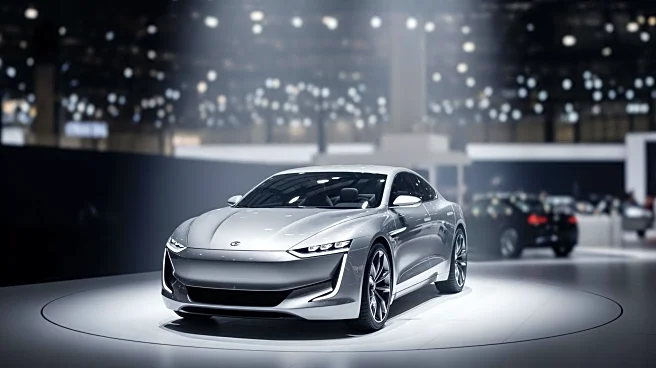What's Happening?
Ford Motor Company has temporarily paused operations at its Louisville Assembly Plant following a UPS cargo jet crash near Louisville Muhammad Ali International Airport. The crash led to a controlled power
outage and evacuation of employees, though no injuries were reported among Ford staff. The incident has caused logistical disruptions, particularly affecting UPS's Worldport air hub, which is crucial for the auto supply chain. Meanwhile, at the SEMA 2025 show in Las Vegas, Ford showcased its Maverick 300T project, featuring a 300-horsepower dealer-installed upgrade kit set to be available in 2026. Additionally, Ford CEO Jim Farley expressed concerns over Apple's CarPlay Ultra, highlighting the ongoing debate about tech companies' influence over in-car systems. Ford is also making global product shifts, phasing out certain diesel engines in favor of more efficient options.
Why It's Important?
The temporary halt at Ford's Louisville plant underscores the vulnerability of manufacturing operations to external disruptions, such as logistics and power outages. This incident could have ripple effects on Ford's production schedules and inventory levels. The showcase at SEMA highlights Ford's strategy to enhance its product offerings through performance upgrades, which could boost revenue without significant production changes. The debate over CarPlay Ultra reflects broader industry concerns about the balance of power between automakers and tech companies, which could impact future vehicle design and consumer experience. Ford's engine strategy aligns with global trends towards more efficient and environmentally friendly vehicles, potentially reducing costs and meeting regulatory demands.
What's Next?
Ford is preparing to resume full production at the Louisville plant, contingent on resolving logistical and power issues. The outcome of the UPS crash investigation may influence future safety protocols. The automotive industry will be closely watching the developments around CarPlay Ultra, as it could set precedents for tech integration in vehicles. Ford's new engine offerings are expected to roll out in 2026, which may affect market dynamics in regions like Australia and South Africa. Investors will monitor Ford's ability to capitalize on its SEMA innovations and manage supply chain challenges.









